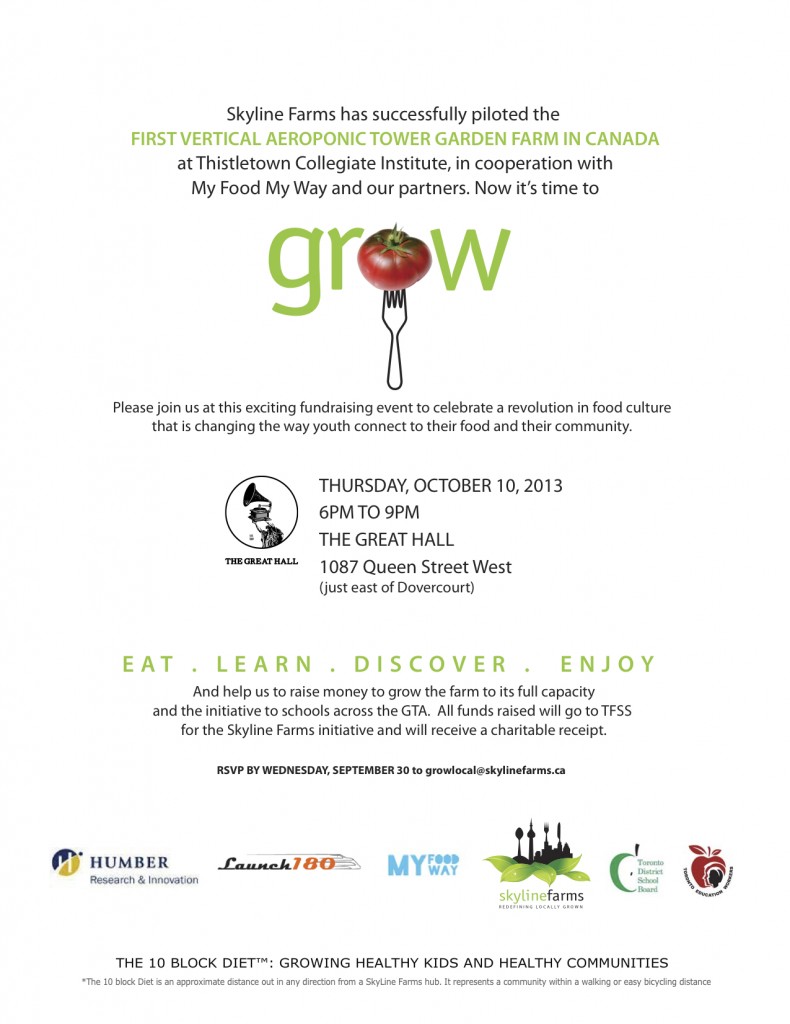Posted: September 22nd, 2013 | Author: jimmurray | Filed under: green art, Re-use | Tags: Eco Friendly, Green Movement, recycling, sustainable innovation, Waste re-use | No Comments »
This is a really cool article about a ‘green’ activity that’s going on in Berlin Germany. The link below will take you to the Fast Company blog where this article is posted. I think this would be a great initiative to try and get launched in Canada, where there seems to be a never ending supply of stuff destined for landfills just hanging around on the streets. The artists’ ‘re-use of this material not only makes for some very interesting art, but also reduces the burden that our ever growing landfills must carry.
The blog was written by NYC writer Sydney Brownstone, whose bio is below the link.
http://www.fastcoexist.com/3016733/berlin-street-artists-make-insane-art-out-of-the-citys-waste#6
Sydney Brownstone is a New York-based staff writer at Co.Exist. She lives in a Brooklyn apartment with windows that don’t quite open, and is interested in systemic abuse of public space and the commons. She’s written for the Village Voice, Mother Jones, Brooklyn Magazine, The L Magazine, and has contributed to NPR.
Posted: September 15th, 2013 | Author: jimmurray | Filed under: Green Communities, Green Initiatives, Green News Links, Our Green Directory | Tags: 10 block diet, eco farming, eco garden, Fund Raiser, green initiative, Kathleen Wynne, My Food My Way, Skyline Farms, TDSB, Vertical Aeroponic Tower Garden Urban Farm | No Comments »
Jacqueline Spicer of The Ink Tank® in Toronto is a good friend. Her son Jake and his business partner have recently launched a new ‘green’ project called Skyline Farms. Like any new project, Skyline Farms was started on a shoestring, but it’s a great idea that deserves support.
Skyline Farms is an environmentally and socially innovative urban farm model that is taking off like gangbusters, with lots of media and political attention–including Premier Kathleen Wynne. They are holding a launch event to celebrate the success of the pilot farm and to raise funds to grow Skyline Farms.
Skyline Farms Release:
Skyline Farms is proud to partner with the Toronto District School Board (TDSB), Toronto Education Workers (TEW) and Launch 180 in supporting Canada’s First Vertical Aeroponic Tower Garden Urban Farm and its growth to nourish schools and communities across the GTA.
On Thursday, October 10, 2013, we are celebrating the success of Skyline Farms’ successful pilot farm and a revolution in food culture that is changing the way youth connect to their food and their community.
The goal of the event is to raise funds to enable the pilot farm to achieve its full capacity: a full greenhouse with 30 Towers that will nourish not only the home school, but also other schools, restaurants and residents in the community. The year-round farms will serve as a state-of-the-art experiential learning facility for high school students aged 13-18, inspiring healthy food choices, introducing new sustainable technologies and preparing them for jobs in this growing sector. The larger goal is to establish Skyline Farms’ unique urban agriculture model at schools across the GTA.
I am writing you to help us grow this socially and sustainably innovative young company and our joint initiative to truly make a difference. Please support us by making either a monetary and/or product donation for our silent auction or to help us manage the event and make this a reality for our schools and communities. All monetary donations will go to the Toronto Foundation for Student Success (TFSS) for the Skyline Farms initiative and will receive a charitable receipt.
The pilot farm launched this spring at Thistletown Collegiate Institute (TCI) under an umbrella program called My Food My Way (MFMY), with a mandate to positively change the food culture in Toronto high schools, homes and communities through healthy food choices within educational institutions. Skyline Farms provides the culinary program at TCI with fresh, hyper-local, high nutrient natural produce and mentors students with hands-on experience on the farm.
Skyline Farms is a Toronto-based urban agriculture company that is “redefining locally grown”. Founded by two young entrepreneurs, graduates of Humber College’s Sustainable Energy and Green Building Program, it is committed to addresses the bigger sustainability picture: environmental, health, community and economic by changing our connections to food and to each other.
Join Skyline Farms, our partners, MFMY ambassadors, sustainability advocates, chefs, farmers, industry professionals, politicians, sponsors, student interns, locavores and supporters at The Great Hall. And please join me in supporting this unique initiative in whatever way you can. Help grow the 10 block diet and grow with us.

Posted: September 8th, 2013 | Author: jimmurray | Filed under: BioFuels, Green Jobs, Green Technology | Tags: additives, Biofuel, gasoline, recycle, world | No Comments »
The argument for and against biofuels in the United States has raged back and forth for years. On the one hand, there are people who shout that one should never turn food (typically corn) into fuel. On the other hand are people shouting back that oil won’t go on forever, and they need to find a viable solution now before it’s too late. However, both sides of the argument in America are quickly being ignored. The reason for that is because biofuels have outgrown the argument, and are quickly becoming commercial industries all over the world rather than just in the first world.
The Country’s Needs
Because of advances in technology it’s become possible to create biofuels out of a wider variety of products than just corn. Fuel additives can be made from palm oil, ethanol can be strained from used vegetation, and it’s possible to make fuel from hemp as well as from algae. These are just a handful of the potential solutions. While it might have been Europe and America that took the first, pioneering steps into the idea of biofuels, the rest of the world has left them behind while searching for their own solutions.
The result of this search is that different countries have adapted different solutions based on what is plentiful in their areas. For instance, countries in South America are focusing solutions on the natural products that come out of the rain forest, while companies in Indonesia are looking to the solutions that abundant supplies of palm oil might yield. There is no reason to have a single type of biofuel for the entire world when there are different solutions readily available on so many different countries’ doorsteps just waiting to be utilized.
Sustainability Is Key
When it comes to biofuels and whether or not they’re commercially viable, the keyword is sustainability. This is the reason that the arguments can get so polarized in the United States; so many people view biofuels as either food or fuel. If biofuel was being made from algae, or from witch grass, there would be no argument because the places those plants grow are not the places that one can grow food. Or, take it a step further, if biofuels could be made from something that was generally considered a waste product, then they would be embraced as a way to reduce waste and to recycle even more. Provided that enough of it can be made to meet the demand.
The viability of a biofuel as a solution depends on how much of it a population needs. In parts of Europe where it is more common to take public transportation or to walk, where the need for any fuel will be lower, then a given solution might be quite viable. That same solution may not work in America, where there are huge spaces and where transportation is largely an individual responsibility. However, just because a solution won’t work in one country doesn’t mean another can’t use it.
This post is contributed by Linda Bailey from housekeeping.org. She is a Texas-based writer who loves to write on the topics of housekeeping, green living, home décor, and more. She welcomes your comments which can be sent to b.lindahousekeeping@gmail.com
Thanks, Linda.
If you would like to be a guest poster on Our Green Directory, send your proposed post, fully proofed, along with tags and any accompanying visuals in j-peg form to: jim.murray@ourgreendirectory.com. As long as it’s ‘green’ in nature and info or opinion that would be beneficial to people looking to evolve their personal lives or businesses through the use of eco-friendly products, services or advice, all posts are welcome. We do reserve the right to reject posts that do not fit these general parameters. Thanks, Jim


